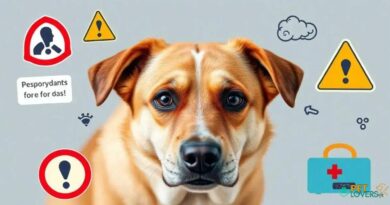What is Zinc in Dog Nutrition
What is Zinc in Dog Nutrition?
Zinc is an essential trace mineral that plays a crucial role in the overall health of dogs. It is vital for various bodily functions, including immune response, skin health, and the synthesis of proteins and DNA. Without adequate zinc, dogs may experience a range of health issues, making it a critical component of their diet.
The Role of Zinc in Immune Function
One of the primary functions of zinc in dog nutrition is its role in supporting the immune system. Zinc helps in the development and activation of T-cells, which are essential for fighting off infections and diseases. A deficiency in zinc can lead to a weakened immune response, leaving dogs more susceptible to illnesses.
Zinc and Skin Health
Zinc is also known for its positive effects on skin health in dogs. It contributes to the maintenance of skin integrity and promotes healing. Dogs with zinc deficiency may exhibit symptoms such as hair loss, skin lesions, and increased susceptibility to skin infections. Ensuring adequate zinc intake can help maintain a healthy coat and skin.
Sources of Zinc in Dog Food
Zinc can be found in various food sources, including meat, fish, eggs, and certain grains. High-quality commercial dog foods often contain zinc in the form of zinc oxide or zinc sulfate. When selecting dog food, it’s essential to choose products that meet the nutritional requirements set by veterinary guidelines to ensure your dog receives sufficient zinc.
Symptoms of Zinc Deficiency in Dogs
Recognizing the symptoms of zinc deficiency is crucial for dog owners. Common signs include poor coat condition, skin lesions, and increased infections. In severe cases, dogs may experience growth retardation and reproductive issues. If you suspect your dog is zinc deficient, consult your veterinarian for proper diagnosis and treatment.
Recommended Zinc Levels for Dogs
The recommended dietary allowance (RDA) for zinc varies depending on the dog’s age, size, and health status. Generally, adult dogs require about 15 mg of zinc per day, while puppies may need slightly more due to their rapid growth. It’s important to monitor your dog’s diet to ensure they are receiving the appropriate amount of zinc.
Supplementing Zinc in Dog Diets
In some cases, dogs may require zinc supplementation, especially if they are on a restricted diet or have specific health conditions. Zinc supplements are available in various forms, including tablets and powders. However, it’s crucial to consult with a veterinarian before adding any supplements to your dog’s diet to avoid potential toxicity.
Potential Risks of Excess Zinc
While zinc is essential for health, too much zinc can lead to toxicity. Symptoms of zinc toxicity in dogs may include vomiting, diarrhea, and lethargy. Chronic exposure to high levels of zinc can cause more severe health issues, including kidney damage. Therefore, it’s vital to maintain a balanced diet that provides the right amount of zinc.
Conclusion: The Importance of Zinc in Dog Nutrition
In summary, zinc is a vital nutrient that plays multiple roles in maintaining the health and well-being of dogs. From supporting the immune system to promoting healthy skin, ensuring your dog receives adequate zinc is essential. Always consult with your veterinarian to determine the best dietary plan for your furry friend.



